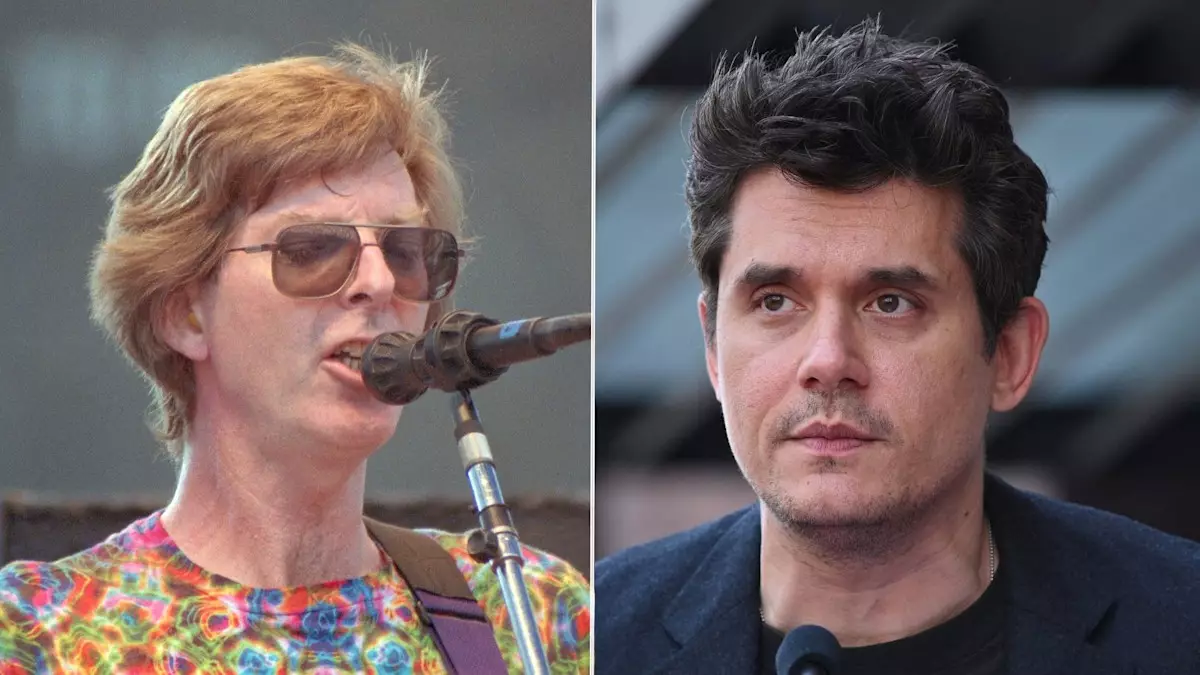The recent passing of Phil Lesh, legendary bassist and founding member of the Grateful Dead, marks the end of an era in rock and roll history. At the age of 84, Lesh’s legacy continues to resonate with fans and musicians alike. His family confirmed his peaceful passing, surrounded by loved ones, prompting an outpouring of tributes that speak to the immense joy he brought to people’s lives. More than just a musician, Lesh represented a musical philosophy rooted in improvisation, community, and emotional connection.
Lesh’s journey with the Grateful Dead began in the mid-1960s in the San Francisco Bay Area, where music was evolving into something revolutionary. Formed alongside Jerry Garcia, Bob Weir, Bill Kreutzman, and Ron “Pigpen” McKernan, the band broke down the barriers of traditional rock by embracing eclectic influences ranging from rock to blues to jazz. This fusion set Grateful Dead apart, not just in sound but also in their commitment to live performance as an art form. Their improvisational style gave audiences a unique experience at each show, allowing them to feel a sense of real-time emotional sharing between musicians and fans.
Despite his professional triumphs, Lesh faced numerous personal challenges throughout his life, notably his battle with cancer and the liver transplant he underwent after contracting hepatitis in the 1990s. Yet, even during these trying times, his music never faltered. Tracks like “Unbroken Chain,” which he composed to reflect the band’s bond with its audience, exemplify Lesh’s capacity to transform personal experiences into universal expressions of love and connection. “Box of Rain,” a moving tribute to his dying father, further showcased his ability to blend life’s hardships into poignant musical narratives.
The impacts of such personal trials became intertwined with his musical contributions, making them not only entertainment but also reflections of life’s complexities. Lesh was a vital force in ensuring that the emotive power of the Grateful Dead’s music remained inextricably linked to their lyrics and thematic content.
A Reflective Community and Collective Grief
The loss of Lesh is deeply felt within the community of Deadheads and the broader landscape of musicians. Tributes emerged not only from his family but also from fellow musicians who recognized his influence on their work. In a heartfelt tribute, Jerry Garcia’s family acknowledged that Lesh’s contributions serve as a “beacon for all humanity,” indicating just how significant his role was in shaping the cultural and musical framework of many who followed in his footsteps. The phrase suggests that Lesh’s life and music will continue to guide future generations, highlighting the enduring nature of his legacy.
Lightheartedly, the tribute concluded with the poignant reminder to “say hi to Jerry,” which reflects the bond these musicians shared in life and now in remembrance. Such sentiments reveal the depth of relationships formed through music, offering comfort to those grieving Phil’s passing.
Although the Grateful Dead disbanded following the tragic death of Jerry Garcia in 1995, Phil Lesh’s passing prompts reflections on the band’s lasting impact and the evolution of its legacy. Current manifestations, such as **Dead & Company**, featuring Bob Weir and Mickey Hart alongside contemporary artists like John Mayer, keep the spirit of the Grateful Dead alive. They recently announced plans to celebrate their legacy and continue their charitable work even as they honor their past and look toward the future.
Interestingly, just two days before his passing, Phil was set to be honored by MusiCares alongside surviving band members for their charitable endeavors, demonstrating the respect and admiration that will persist even after his departure. As generations of musicians draw inspiration from Lesh’s work, his influence will undoubtedly persist in the fabric of music, ensuring that his memory will never fade.
While the music community mourns Phil Lesh’s loss, they also celebrate a life dedicated to creativity, improvisation, and the connection through music that defines the very essence of the Grateful Dead. His legacy is woven into the hearts of many, reminding us that music has the power to transcend time and space, uniting us in shared experiences.

